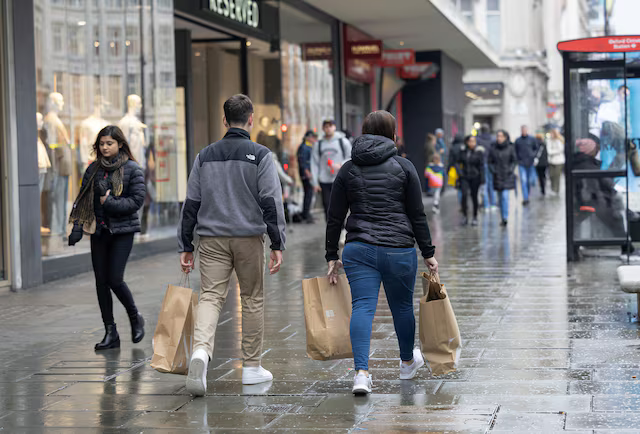Retail sales in the United Kingdom rose more than expected in April, offering a temporary boost to the country’s economic outlook.
According to data released by the Office for National Statistics (ONS) on Friday, sales volumes increased by 1.2% compared to March, beating economists’ forecasts, which ranged between 0.2% and 0.4%.
The ONS attributed the surprising strength to unusually sunny and warm weather, which encouraged consumer spending across food outlets and specialty stores. The report showed that food sales surged by 3.9%—rebounding from earlier declines in February and March—while department stores and household goods retailers also recorded gains of 2.8% and 2.1%, respectively. However, some segments of the retail sector, including clothing and “other” non-food stores, saw declines of 1.8% and 3.1%, respectively.
This marks the fourth consecutive monthly rise in retail sales, excluding the pandemic period, the longest such streak since 2004. Over the past three months, sales increased by 1.8%, the largest quarterly rise since July 2021.
The broader economic context remains mixed. While the consumer confidence index from research firm GfK rose modestly in May, reflecting improved sentiment about household finances and the broader economy, some economists warn that the momentum may not last. Capital Economics’ UK economist Alex Kerr said that April’s strong showing was likely driven in part by temporary factors like the weather, and expects growth to moderate in the coming months.
The retail data also coincides with broader economic trends. The UK economy grew by 0.7% in the first quarter of the year, defying earlier concerns of a recession. Nonetheless, households have faced rising costs in April, including increased taxes, water bills, and transportation fares, which some analysts say could limit consumer spending going forward.
The British pound rose 0.5% following the release of the data, reaching one of its highest levels since 2022. Money markets are now pricing in roughly a 50% chance that the Bank of England could lower interest rates as early as August, with at least one further cut expected by the end of the year.
Despite the strong retail figures, caution remains. Forvis Mazars’ Matt Dalton noted that while recent sales are encouraging, inflation pressures and slower wage growth could temper consumer behavior later this year. Energy prices are expected to decline in July, potentially easing some pressure on household budgets, but the overall sustainability of retail growth remains uncertain.
CNBC, Reuters, Bloomberg, and the Guardian contributed to this report.










The latest news in your social feeds
Subscribe to our social media platforms to stay tuned